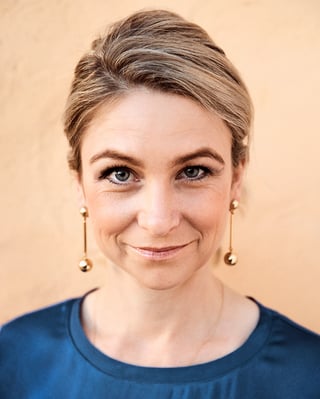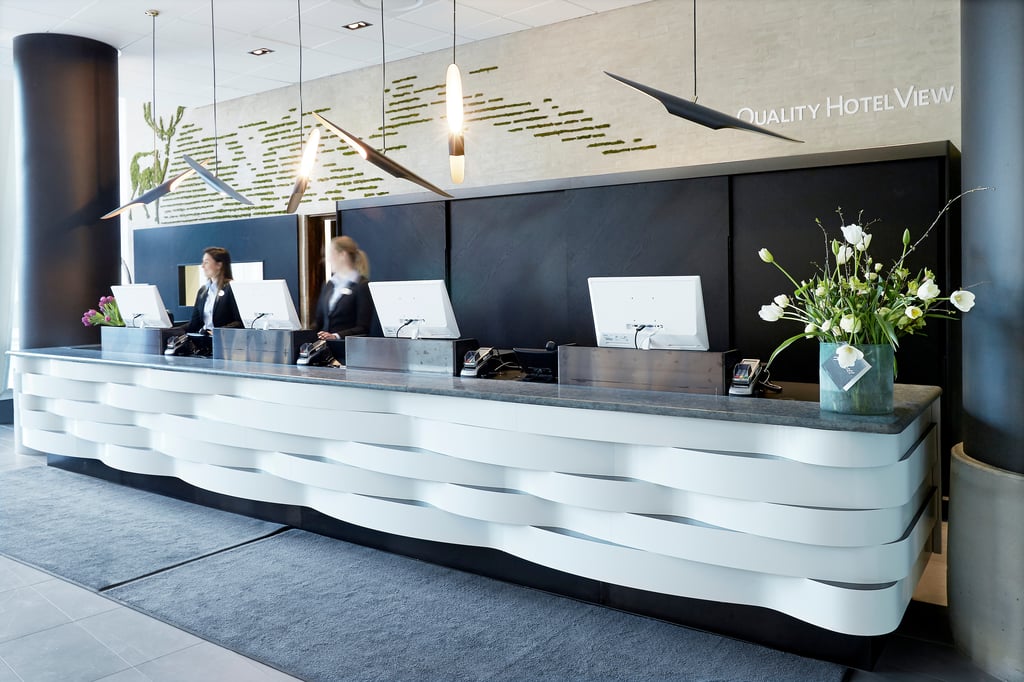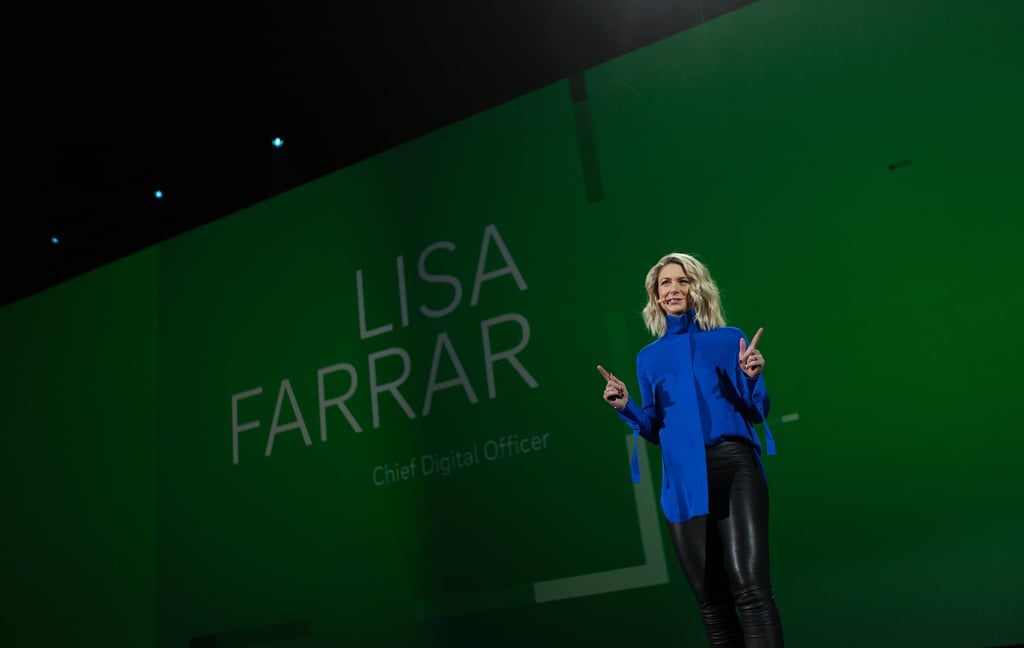Those of you who keep an eye on digital innovation in the Nordics can hardly have missed the fact that Petter Stordalen, founder of Nordic Choice Hotels, decided to transform his hotel chain into a digital leader by investing 250 million NOK (est. $30 million USD) into his company earlier this year.
Appointed to the task of leading the change, and keeping Nordic Choice ahead of the digital pack, is CDO Lisa Farrar, who by all accounts must have one of the most exciting positions in the Nordics right now. Lisa joined us at the BBH office in Stockholm to share her insights on how to lead digital transformation and innovation at a company with 190 hotels across the Nordic and Baltic region.
As the former CEO of the online travel agency Mr. Jet/ebookers and as CEO of Scandinavia for e-commerce marketplace Groupon, 37-year-old Lisa Farrar has the right background and digital-first knowledge to drive innovation as Chief Digital Officer at Nordic Choice Hotels and CEO of eBerry. The latter is an initiative with 150 employees working to develop technologies and generate insights to deliver the best hotel service experience in the world.
 Lisa: “After fifteen years in a corporate environment very much focused on quarterly reports, targets and investments that are fairly short term – I wanted to work with a company that was more driven by a long-term vision. And I also wanted to work for a company with stronger ties to the Nordics. When I came across Petter Stordalen and the Nordic Choice Hotel company, I found it was completely unique in terms of culture. At Nordic Choice everything is about People, Planet and then Profit. The people, both guests and our employees, are what we put in the absolute center of our attention. How we view the environment, we've got as a second, and how we view our profits comes as a third.
Lisa: “After fifteen years in a corporate environment very much focused on quarterly reports, targets and investments that are fairly short term – I wanted to work with a company that was more driven by a long-term vision. And I also wanted to work for a company with stronger ties to the Nordics. When I came across Petter Stordalen and the Nordic Choice Hotel company, I found it was completely unique in terms of culture. At Nordic Choice everything is about People, Planet and then Profit. The people, both guests and our employees, are what we put in the absolute center of our attention. How we view the environment, we've got as a second, and how we view our profits comes as a third.
What’s more, Petter owns the company outright and there are no other shareholders. He has a unique personality as he is extremely open to taking risks and he is fascinated by new things. He doesn’t know technology, but understands that technology can enable things to happen and he trusts people to do their jobs. So, combining those three things; the appetite for risk, the curiosity, and trust, you have Petter Stordalen. It’s amazing to be able to work for someone that has those values.
“You either accept that these guys will deliver the technology and deliver that digital space and you don't invest in technology… Or you choose the other way, which is to invest in the technology side”
Tell us about digital development in the service industry from your perspective. It’s rather uncommon that a traditional service company starts a digital innovation hub.
“You’re right! Our industry is not known for being innovative or for being progressive when it comes to new technology – simply because we didn’t have to be. In the early 2000s the travel industry went through a fairly deep recession, compounded by the 9/11 events. This created an opportunity for a new set of players to get traction, namely the Online Travel Agencies, such as Expedia, Orbitz and Booking.com. They invested heavily in both technology and marketing – meaning we didn’t have to! Fast forward a decade and these guys have grown larger market caps than most of the airlines and hotels, as well as taking a big cut of the margins.
So, what do you do? That's where the binary choice comes in. You either accept that these guys will be your technology and marketing partner and you don't invest in technology. As a hotel, you become a commodity – a supplier of rooms with little or no information about your guests. Or you choose the other way, which is to invest in technology and marketing. This route requires some long-term perspective when it comes to investment, as well as volumes. But it gives you the ability to create a unique guest journey, a close relationship with your customers and a more sustainable business model.
“Our guests are what drives us, so we need to mine customer data to know who they are, what their preferences are and how we can deliver a fantastic experience when they stay with us.”
While other hotel chains may view online travel agencies as a necessary evil, you consider them an important source of traffic and customer data.
“That’s right. Our guests are what drives us, so we need to make sure we are visible where they are. Search engines, travel research sites and online travel agencies are all part of our marketing landscape. But the more we know about our guests, the better experience we can deliver, hence why booking direct is so valuable. This is where the idea to eBerry was born from, the more we know about you, the better experience we can deliver. eBerry was set up at the end of 2015 to explore this and I started in January 2016. Today, we are more than 150 people in the team, the majority of whom works in technology and guest experience.

When do you expect to be done?
“We will never be done! Our guest’s expectations on us are constantly evolving, and not necessarily set by what they experience within the travel industry, but what they experience in life. Hence, we need to ensure we build products and experiences that can compete with the best in the world, be it Apple, Starbucks or Tesla. ‘Good’ is not good enough anymore, we must constantly evolve and make sure we can compete.
“Customer expectations are not just influenced by the hotel industry. Customer expectations are influenced by what they see at Amazon, what they see at Apple, what they see at Tesla.”
What is at the core of eBerry’s business?
“The customer! We really try to change the way traditional development and organisations look at innovation, and we do this by putting our customers are the very core of what we do, listening to their feedback, needs and wants. A lot of this is done by using data in systematic ways, but equally important is small tests that are verified and prototyped on customers.“

How do you stay on top of new business and technology trends?
By being curious, and with a little bit of fear of falling behind. But on a serious note, we see this as an extremely important area – we don’t believe we will be making money in five years where we make money today, so we have taken the step to create a specific team that only focuses on future technologies, business models and challenging the organization to think differently. They talk to us about blockchain or artificial intelligence (AI) and other technologies that are now becoming not just buzzwords but real things. They are responsible for pushing and challenging our organization.
We believe there's a huge opportunity with blockchain technology, for example. How can we start realizing that? We do a lot of small tests to find out how it impacts our guests or employees. As an example, we took Amazon’s intelligent personal assistant Alexa and hacked it to be able to answer our guests more frequently asked questions. We put it in a hotel room here in Stockholm to learn and understand how our guests were prepared to interact using their voice. It’s probably not scalable to implement in all of our 35,000 hotel rooms, but we can thru small tests learn and understand our customers better, as well as experiment with new technology.
How many experiments and tests like this are you running?
“There are many during a year, both small and big. It varies because some experiments take a lot of effort and others are very small. We do a lot of hackathons and a lot of co-partnerships with startups and bigger firms. Right now, for example, we have an ongoing experiment with an electronics company. They have a new product that looks like a fridge but it's actually a dry-cleaning machine. We put it in hotel rooms where you hang in your suit that's been packed in your suitcase and it will be dry cleaned in twenty minutes. We’re also trying out tiny, tiny startups that might be two or three people, that we can learn from. It’s is a way for us to learn and evolve.”
How do you achieve this kind of working methods in a big organization?
“Dare to try new things and make failure part of the plan. We know and expect that a lot of these tests will not be scalable, will not work as intended or simply the customers aren’t interested. But we make sure we learn from them in a systematic way, as well as knowing that when we find the sweet spot, we can go all in. When it comes to being part of 14,000 employee organization, we work in an extremely flat hierarchy where everyone has the mandate to make decisions – that makes us fast and agile.
.png?width=205&name=3-PaySummary-iPhone7-Silver%20(1).png)

What are the most important tech trends that are influencing the industry right now?
“Hmmm…I think the two most exciting trends that we're seeing is the mobility trend and working with AI to create personalized experiences. Mobility is so intricate to what we do. When we travel, you're mobile. Imagine checking in on your phone, choosing your room, opening your door, controlling the lighting and streaming Netflix. That type of personalization or mobility solution is what I think is really happening now.”
How do you differentiate your service from competitors?
“Our strategies have to include long-term bets and the delivery of short-term innovations all the time. In this respect, what we're looking at now is how can we capture the sharing economy rather than viewing it as a threat. We are also looking into ways of using our business to offer other things than just a bed for a night – for example, if you are working on something and seek inspiration, why not come down and sit in the hotel lobby? Imagine if we had hotel rooms that could also be offices? Imagine if you had a birthday party, where one room could turn into six rooms because we have such flexible walls. What if you could rent our rooms not for just one night but six months? What if you could buy a room and rent it out?”
Where do you look for inspiration?
“Looking at different industries is the way to go; I went to Singularity University in California just before the summer, which was hugely inspiring because they talked about things that were so much advanced from the thinking I had done so far. You need to get inspiration that is extremely advanced, but then you also need real examples of how to utilize it in your industry. The best inspiration often comes from people and places that don’t overlap with yours (travel in our case), and should not be limited to technology but include views from scientists and philosophers, as well as entrepreneurs and scale-ups.”
What are you doing within the fields of AI and machine learning?
“I feel a bit nervous because the potential is so huge and we need to make sure that it's part of everything we do. I’m convinced that AI, machine learning and robotics will change a lot of what we know and experience in the world today. Those that don't make the investment or don't understand the capacity will lose out. I would make a bet that this is an area that will be a natural part of all our development and innovation in the months and years to come.
As well as the Alexa experiment, earlier this year we had our first robot in customer service, which handles very manual tasks. They can work 24 hours a day, seven days a week, and we've seen that this robot has allowed three full-time people to focus on more value-adding tasks. That's our first play with robotics. Machine learning and AI is something we currently use in buying traffic and marketing investment, I also expect this to create opportunities for personalization and a better digital experience in the very near future.
After two intense and interesting hours, it’s time for Lisa to get back to business. It’s Friday afternoon and we ask if she will soon go home: “No, not yet she says. I will head back to the office and work a couple more hours.” It is this level of commitment – combined with experience and leadership – that will be the hallmarks of Lisa’s tenure at Nordic Choice Hotels – something we are sure Petter Stordalen knows very well.
Thanks for a truly inspiring interview and good luck from the BBH team in Stockholm!